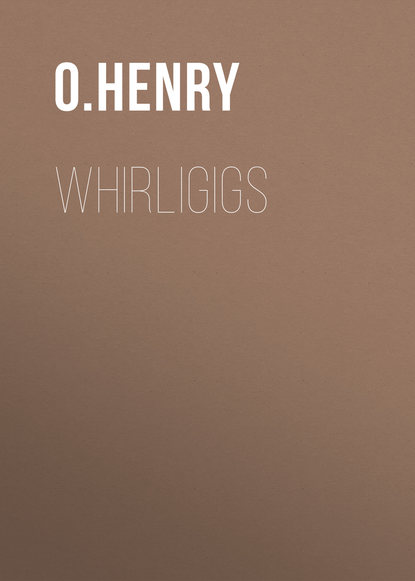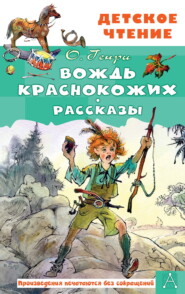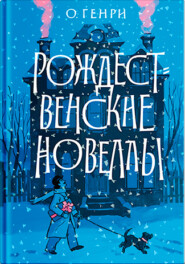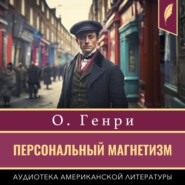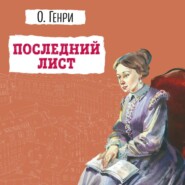По всем вопросам обращайтесь на: info@litportal.ru
(©) 2003-2024.
✖
Whirligigs
Настройки чтения
Размер шрифта
Высота строк
Поля
"'The present ranch manager seems to be competent and reliable, and is rapidly placing upon a paying basis a business that, in other hands, had been allowed to suffer from neglect and misconduct.
"'This property was secured by Colonel Beaupree in a deal with a Western irrigation syndicate, and the title to it seems to be perfect. With careful management and the natural increase of land values, it ought to be made the foundation for a comfortable fortune for its owner.'"
When Octavia ceased reading, Aunt Ellen uttered something as near a sniff as her breeding permitted.
"The prospectus," she said, with uncompromising metropolitan suspicion, "doesn't mention the centipedes, or the Indians. And you never did like mutton, Octavia. I don't see what advantage you can derive from this – desert."
But Octavia was in a trance. Her eyes were steadily regarding something quite beyond their focus. Her lips were parted, and her face was lighted by the kindling furor of the explorer, the ardent, stirring disquiet of the adventurer. Suddenly she clasped her hands together exultantly.
"The problem solves itself, auntie," she cried. "I'm going to that ranch. I'm going to live on it. I'm going to learn to like mutton, and even concede the good qualities of centipedes – at a respectful distance. It's just what I need. It's a new life that comes when my old one is just ending. It's a release, auntie; it isn't a narrowing. Think of the gallops over those leagues of prairies, with the wind tugging at the roots of your hair, the coming close to the earth and learning over again the stories of the growing grass and the little wild flowers without names! Glorious is what it will be. Shall I be a shepherdess with a Watteau hat, and a crook to keep the bad wolves from the lambs, or a typical Western ranch girl, with short hair, like the pictures of her in the Sunday papers? I think the latter. And they'll have my picture, too, with the wild-cats I've slain, single-handed, hanging from my saddle horn. 'From the Four Hundred to the Flocks' is the way they'll headline it, and they'll print photographs of the old Van Dresser mansion and the church where I was married. They won't have my picture, but they'll get an artist to draw it. I'll be wild and woolly, and I'll grow my own wool."
"Octavia!" Aunt Ellen condensed into the one word all the protests she was unable to utter.
"Don't say a word, auntie. I'm going. I'll see the sky at night fit down on the world like a big butter-dish cover, and I'll make friends again with the stars that I haven't had a chat with since I was a wee child. I wish to go. I'm tired of all this. I'm glad I haven't any money. I could bless Colonel Beaupree for that ranch, and forgive him for all his bubbles. What if the life will be rough and lonely! I – I deserve it. I shut my heart to everything except that miserable ambition. I – oh, I wish to go away, and forget – forget!"
Octavia swerved suddenly to her knees, laid her flushed face in her aunt's lap, and shook with turbulent sobs.
Aunt Ellen bent over her, and smoothed the coppery-brown hair.
"I didn't know," she said, gently; "I didn't know – that. Who was it, dear?"
When Mrs. Octavia Beaupree, née Van Dresser, stepped from the train at Nopal, her manner lost, for the moment, some of that easy certitude which had always marked her movements. The town was of recent establishment, and seemed to have been hastily constructed of undressed lumber and flapping canvas. The element that had congregated about the station, though not offensively demonstrative, was clearly composed of citizens accustomed to and prepared for rude alarms.
Octavia stood on the platform, against the telegraph office, and attempted to choose by intuition from the swaggering, straggling string of loungers, the manager of the Rancho de las Sombras, who had been instructed by Mr. Bannister to meet her there. That tall, serious, looking, elderly man in the blue flannel shirt and white tie she thought must be he. But, no; he passed by, removing his gaze from the lady as hers rested on him, according to the Southern custom. The manager, she thought, with some impatience at being kept waiting, should have no difficulty in selecting her. Young women wearing the most recent thing in ash-coloured travelling suits were not so plentiful in Nopal!
Thus keeping a speculative watch on all persons of possible managerial aspect, Octavia, with a catching breath and a start of surprise, suddenly became aware of Teddy Westlake hurrying along the platform in the direction of the train – of Teddy Westlake or his sun-browned ghost in cheviot, boots and leather-girdled hat – Theodore Westlake, Jr., amateur polo (almost) champion, all-round butterfly and cumberer of the soil; but a broader, surer, more emphasized and determined Teddy than the one she had known a year ago when last she saw him.
He perceived Octavia at almost the same time, deflected his course, and steered for her in his old, straightforward way. Something like awe came upon her as the strangeness of his metamorphosis was brought into closer range; the rich, red-brown of his complexion brought out so vividly his straw-coloured mustache and steel-gray eyes. He seemed more grown-up, and, somehow, farther away. But, when he spoke, the old, boyish Teddy came back again. They had been friends from childhood.
"Why, 'Tave!" he exclaimed, unable to reduce his perplexity to coherence. "How – what – when – where?"
"Train," said Octavia; "necessity; ten minutes ago; home. Your complexion's gone, Teddy. Now, how – what – when – where?"
"I'm working down here," said Teddy. He cast side glances about the station as one does who tries to combine politeness with duty.
"You didn't notice on the train," he asked, "an old lady with gray curls and a poodle, who occupied two seats with her bundles and quarrelled with the conductor, did you?"
"I think not," answered Octavia, reflecting. "And you haven't, by any chance, noticed a big, gray-mustached man in a blue shirt and six-shooters, with little flakes of merino wool sticking in his hair, have you?"
"Lots of 'em," said Teddy, with symptoms of mental delirium under the strain. Do you happen to know any such individual?"
"No; the description is imaginary. Is your interest in the old lady whom you describe a personal one?"
"Never saw her in my life. She's painted entirely from fancy. She owns the little piece of property where I earn my bread and butter – the Rancho de las Sombras. I drove up to meet her according to arrangement with her lawyer."
Octavia leaned against the wall of the telegraph office. Was this possible? And didn't he know?
"Are you the manager of that ranch?" she asked weakly.
"I am," said Teddy, with pride.
"I am Mrs. Beaupree," said Octavia faintly; "but my hair never would curl, and I was polite to the conductor."
For a moment that strange, grown-up look came back, and removed Teddy miles away from her.
"I hope you'll excuse me," he said, rather awkwardly. "You see, I've been down here in the chaparral a year. I hadn't heard. Give me your checks, please, and I'll have your traps loaded into the wagon. José will follow with them. We travel ahead in the buckboard."
Seated by Teddy in a feather-weight buckboard, behind a pair of wild, cream-coloured Spanish ponies, Octavia abandoned all thought for the exhilaration of the present. They swept out of the little town and down the level road toward the south. Soon the road dwindled and disappeared, and they struck across a world carpeted with an endless reach of curly mesquite grass. The wheels made no sound. The tireless ponies bounded ahead at an unbroken gallop. The temperate wind, made fragrant by thousands of acres of blue and yellow wild flowers, roared gloriously in their ears. The motion was aërial, ecstatic, with a thrilling sense of perpetuity in its effect. Octavia sat silent, possessed by a feeling of elemental, sensual bliss. Teddy seemed to be wrestling with some internal problem.
"I'm going to call you madama," he announced as the result of his labours. "That is what the Mexicans will call you – they're nearly all Mexicans on the ranch, you know. That seems to me about the proper thing."
"Very well, Mr. Westlake," said Octavia, primly.
"Oh, now," said Teddy, in some consternation, "that's carrying the thing too far, isn't it?"
"Don't worry me with your beastly etiquette. I'm just beginning to live. Don't remind me of anything artificial. If only this air could be bottled! This much alone is worth coming for. Oh, look I there goes a deer!"
"Jack-rabbit," said Teddy, without turning his head.
"Could I – might I drive?" suggested Octavia, panting, with rose-tinted cheeks and the eye of an eager child.
"On one condition. Could I – might I smoke?"
"Forever!" cried Octavia, taking the lines with solemn joy. "How shall I know which way to drive?"
"Keep her sou' by sou'east, and all sail set. You see that black speck on the horizon under that lowermost Gulf cloud? That's a group of live-oaks and a landmark. Steer halfway between that and the little hill to the left. I'll recite you the whole code of driving rules for the Texas prairies: keep the reins from under the horses' feet, and swear at 'em frequent."
"I'm too happy to swear, Ted. Oh, why do people buy yachts or travel in palace-cars, when a buckboard and a pair of plugs and a spring morning like this can satisfy all desire?"
"Now, I'll ask you," protested Teddy, who was futilely striking match after match on the dashboard, "not to call those denizens of the air plugs. They can kick out a hundred miles between daylight and dark." At last he succeeded in snatching a light for his cigar from the flame held in the hollow of his hands.
"Room!" said Octavia, intensely. "That's what produces the effect. I know now what I've wanted – scope – range – room!"
"Smoking-room," said Teddy, unsentimentally. "I love to smoke in a buckboard. The wind blows the smoke into you and out again. It saves exertion."
The two fell so naturally into their old-time goodfellowship that it was only by degrees that a sense of the strangeness of the new relations between them came to be felt.
"Madama," said Teddy, wonderingly, "however did you get it into your bead to cut the crowd and come down here? Is it a fad now among the upper classes to trot off to sheep ranches instead of to Newport?"
"I was broke, Teddy," said Octavia, sweetly, with her interest centred upon steering safely between a Spanish dagger plant and a clump of chaparral; "I haven't a thing in the world but this ranch – not even any other home to go to."
"Come, now," said Teddy, anxiously but incredulously, "you don't mean it?"
"When my husband," said Octavia, with a shy slurring of the word, "died three months ago I thought I had a reasonable amount of the world's goods. His lawyer exploded that theory in a sixty-minute fully illustrated lecture. I took to the sheep as a last resort. Do you happen to know of any fashionable caprice among the gilded youth of Manhattan that induces them to abandon polo and club windows to become managers of sheep ranches?"
"It's easily explained in my case," responded Teddy, promptly. "I had to go to work. I couldn't have earned my board in New York, so I chummed a while with old Sandford, one of the syndicate that owned the ranch before Colonel Beaupree bought it, and got a place down here. I wasn't manager at first. I jogged around on ponies and studied the business in detail, until I got all the points in my head. I saw where it was losing and what the remedies were, and then Sandford put me in charge. I get a hundred dollars a month, and I earn it."
"Poor Teddy!" said Octavia, with a smile.





